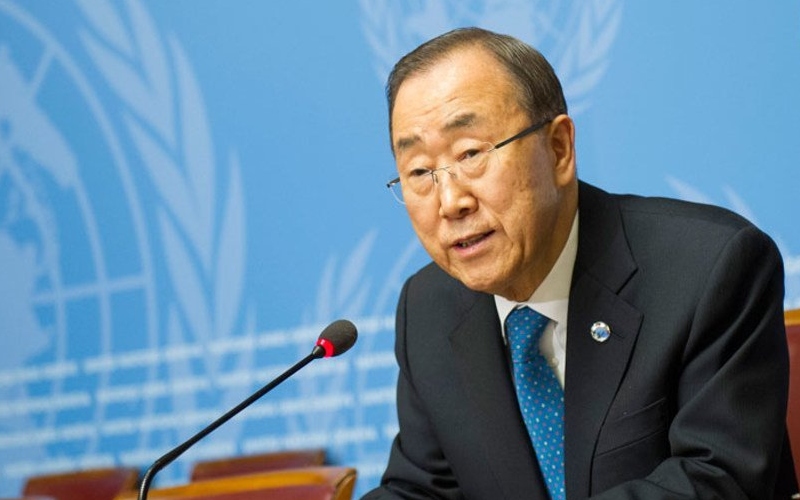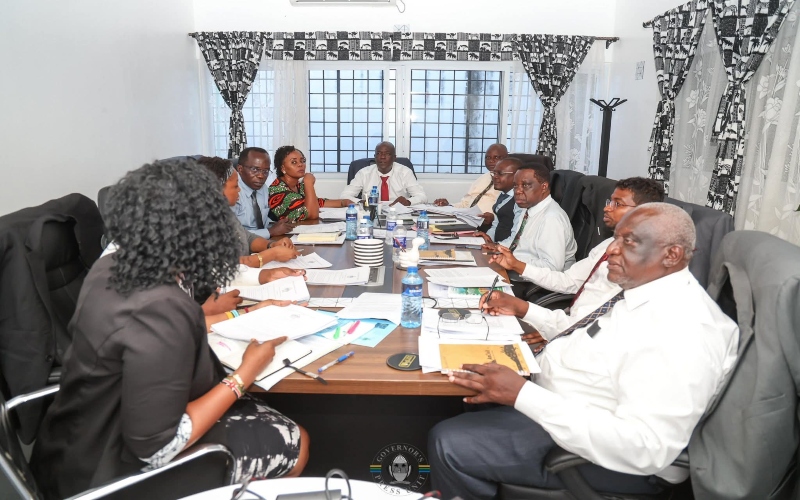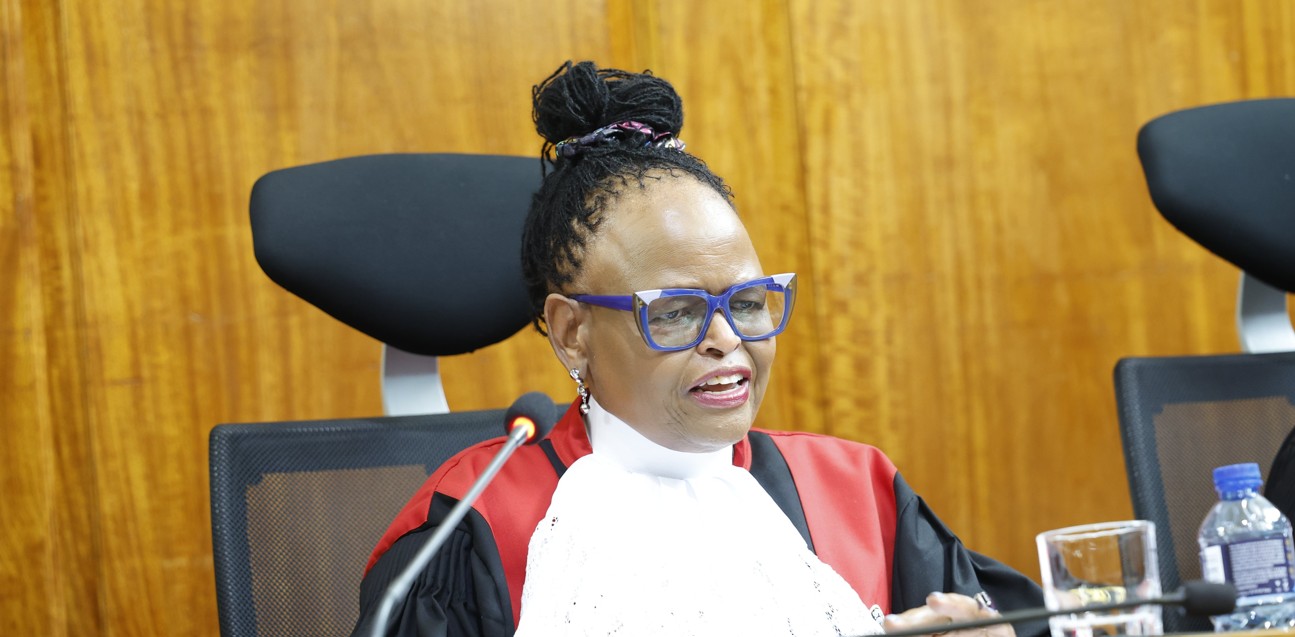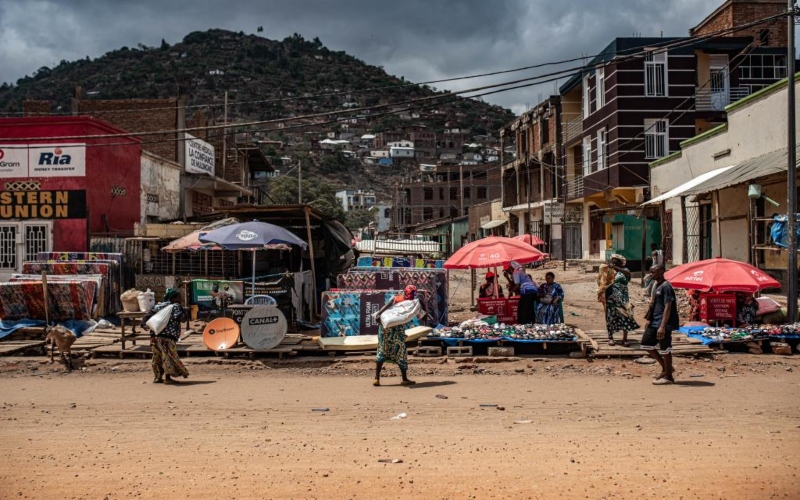New bill imposes five-year jail term for stealing free sanitary towels
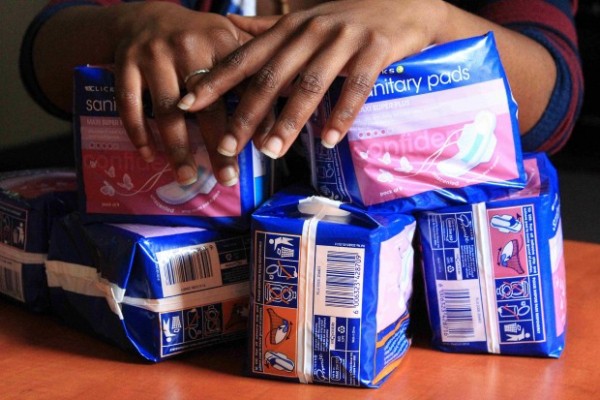
The committee is mandated to provide free, sufficient, and quality sanitary towels to every woman employed in or studying at public institutions, and those in correctional facilities.
In September 2019, Jacqueline Chepngeno, was shocked when she got her first period only to be shamed by her teacher who called her dirty in front of the class.
The 14-year-old girl in Konoin Sub-County, Bomet County proceeded to commit suicide.
More To Read
- Gloria Orwoba drops petition challenging her removal from Senate
- KEWOPA condemns treatment of ex-senator Gloria Orwoba outside Parliament
- Gloria Orwoba set to be arraigned for 'creating disturbance' outside Parliament
- Drama as former nominated Senator Gloria Orwoba barred from Senate despite court reinstatement
- UDA ordered to reinstate Gloria Orwoba after tribunal finds expulsion unlawful
- Blow to Gloria Orwoba as High Court throws out petition challenging UDA disciplinary process
The challenge of accessing menstrual products is a significant crisis for many Kenyan women and girls, especially those in low-income communities.
Nominated Senator Gloria Orwoba is determined to tackle this issue through the Sanitary Towels Provision Bill, 2024, which has already been introduced in the Senate for its first reading.
This legislation aims to eliminate period poverty by providing free sanitary pads to all schoolgirls and women in prison nationwide.
Rebranding, stealing, or selling free sanitary towels provided by the state could lead to a five-year prison sentence or a fine of Sh10 million under a new legislative proposal.
The Provision of Sanitary Towels Bill, 2024 will ensure that all schoolgirls and women inmates receive sanitary towels at no cost.
"A person who rebrands or resells sanitary towels distributed by the committee or a county interdepartmental committee commits an offence," the bill reads.
For first-time offenders, the penalty is a Sh5 million fine or three years in jail, while repeat offenders face up to Sh10 million or five years in prison.
The proposed law mandates the government to allocate an annual budget specifically to provide these essential items to learners.
"The purpose of the bill is to provide for the provision of quality, free, and sufficient sanitary towels in all public institutions," reads the bill.
To ensure effective distribution, the bill seeks to establish an Inter-Ministerial Committee tasked with coordinating the provision of sanitary towels.
This committee will include a chairperson and principal secretaries from various ministries, such as Gender, Basic Education, Public Health, Finance, Higher Education, Vocational Training, and the Attorney General.
In addition, it will include representatives from the Council of Governors and the National Gender and Equality Commission.
"The committee shall advise the government on the provision of sanitary towels in all public institutions and correctional facilities and coordinate their provision to all public institutions and correctional facilities," the bill reads.
The committee is mandated to provide free, sufficient, and quality sanitary towels to every woman employed in or studying at public institutions, and those in correctional facilities.
"The committee shall develop a framework to facilitate the availability and distribution of sanitary towels in all public institutions and correctional facilities in Kenya," the bill outlines.
To strengthen its efforts, the committee can co-opt individuals with specific skills and expertise as necessary.
In addition, the bill proposes the establishment of county interdepartmental committees to oversee local implementation. Each county committee will be chaired by the executive responsible for gender matters.
"The respective county governor shall appoint members of the county interdepartmental committee by notice in the Gazette," the bill states, ensuring localised management of the initiative.
The Gender Cabinet Secretary, in consultation with the committee and the Council of Governors, will also be empowered to create regulations to ensure the effective implementation of the Act.
This collaborative approach aims to streamline processes and enhance accountability.
Currently, the Basic Education Act allows the Ministry of Education to provide free sanitary towels to schools.
The Gender CS in consultation with the committee and the Council of Governors, make regulations generally for the better carrying into effect of any provisions of this Act.
However, the new bill amends Section 18 of the Basic Education Act to provide that the Ministry of Education shall have 'the Inter-Ministerial Committee on Provision of Sanitary Towels established under the Provision of Sanitary Towels Act'.
"The Cabinet secretary may, in consultation with the committee and the Council of County Governors, make regulations generally for the better carrying into effect of any provisions of this Act," the Bill reads further.
A report by the Auditor General in April 2024 revealed serious underfunding in Kenya's free sanitary towels programme for schoolgirls, leading many, especially in rural areas, to drop out due to a lack of access to menstrual hygiene products.
Although the government has spent nearly Sh4 billion from 2013 to 2023 to provide pads to 12.6 million students nationwide, the audit highlights a significant shortfall in resources.
"A review of the distribution lists indicated that the quantities of sanitary towels issued to girls in primary and secondary schools were insufficient to last them for the period they were in school," reads the report in part.
On average, the Ministry of Education supplied only three packets per girl each year, 42 per cent of the annual nine-packet allocation.
"The ministry provided seven packets of sanitary towels per girl or year, as opposed to the required nine packets. This was attributed to budgetary constraints," reads the report.
The performance audit carried out between 2019 and 2023 across 44 schools, assessed the budget allocation and implementation of the programme established by the 2017 Basic Education Amendments Act to provide free, adequate sanitary towels to every girl who has reached puberty.
Unfortunately, the findings were quite alarming.
"For instance, the total girls' enrolment in classes six, seven and eight in the financial year 2021-2022 was Sh1,675,299, which means the Ministry of Education required a budget of Sh621,200,869 to procure nine packets. However, an amount of Sh259,092,503 was allocated, resulting in a deficit of Sh362,108,365," reads the report.
Top Stories Today


